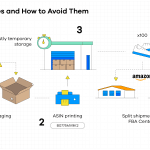
With the internet’s global reach, it’s easier than ever for businesses to reach out to new international markets and millions of potential new customers. Amazon already does the hard work of maintaining an ecommerce website, and they can place your products in front of consumers eager to purchase.
If you have already sold your products on Amazon domestically, you know how lucrative it can be. Expanding to international sales through Amazon is as simple as registering a seller account in any of the markets where Amazon is available, which continues to grow. The online giant continues to expand the number of countries where it can be found.
Why Use Amazon?
A benefit of using Amazon to expand your business internationally is that you can leverage Amazon’s worldwide trust and renown. A recent survey found that 53% of international customers would be more likely to buy from Amazon Prime than from other companies’ websites. 57% of customers in the United Kingdom and Belgium thought that Amazon was a top digital retailer.
Likewise, you get instant access to millions of additional customers who regularly use Amazon to shop when they buy online. The numbers bear this out. Another study found that currently, 40% of all global spending online is through the giant retailer, and that number is expected to rise.
Unified European Account
Amazon’s Unified European Account simplifies the logistics of reaching markets in Europe. As of this writing, Amazon is available in the United Kingdom, France, Germany, Italy, and Spain, all of which can be managed from one Seller Central account. Additionally, unified North American accounts are available, adding the same functionality for the Canadian and Mexican marketplaces.
Although you can view and manage all of your transactions in multiple European markets in one place, you will need to list your items in each marketplace separately. This is by design so that you are always in control of where you sell your goods.
Also, when using FBA (Fulfillment By Amazon), you only need to ship to one location to reach all European markets rather than multiple countries. While it is not required to set up your account, you will want to register for a VAT number from each country you wish to do business in, which you can do online by going to the VAT authority’s website for that country.
Other Markets
In addition to the EU, Amazon is available in Japan and China. However, before you decide to sell your goods in China, you need to comply with some restrictions on what you can sell and some other special rules.
Fulfillment By Amazon (FBA)
If you already sell through Amazon, you are likely already familiar with FBA. When you list a product for sale on Amazon, you send your merchandise to Amazon’s warehouses, and Amazon takes care of picking, packing, and shipping it out whenever someone purchases it. Amazon also takes care of returns for you.
While Descartes Sellercloud doesn’t recommend using FBA exclusively, we have noticed that it is quite popular with Amazon sellers in Europe because it makes shipping much easier. Other benefits of FBA include making Amazon’s same-day shipping service available to your customers and making your products visible to Amazon Prime members, who otherwise might not see them.
Value Added Tax (VAT)
All sales of goods and services throughout the EU countries are subject to Value Added Tax (VAT). It applies to “goods and services for use or consumption” and is a percentage of the total sales price. The percentage amount varies from country to country.
One way to reduce the amount of VAT you need to collect is to use FBA and leverage the distance selling rules to charge the lower VAT of the country you are shipping from, regardless of the destination country’s rate. There are limits to this, of course, but in our experience, you can significantly reduce your VAT obligation this way.
Don’t try to avoid paying your VAT obligation. The European tax authorities are very serious about collecting their due. They have been known to troll through online shops and marketplaces, posing as shoppers to root out tax evaders. The penalties for failing to comply with VAT rules include stiff fines and accrued interest, which can add up quickly.
Customs
Regardless of where you sell your goods, you must be aware of and comply with the customs regulations of the country in which you want to do business. Whether you use FBA or not, Amazon’s rules specifically state that you are responsible for complying with all customs laws, so it’s a good idea to become familiar with them.
We suggest creating clear shipping labels and detailed manifests to expedite the customs process. As Amazon presses forward with offering its services worldwide, it offers sellers endless opportunities to reach new markets for their products. Its European Unified Account with FBA is especially appealing as it greatly simplifies the logistics of selling in multiple countries.
Book a Descartes Sellercloud demo today.




